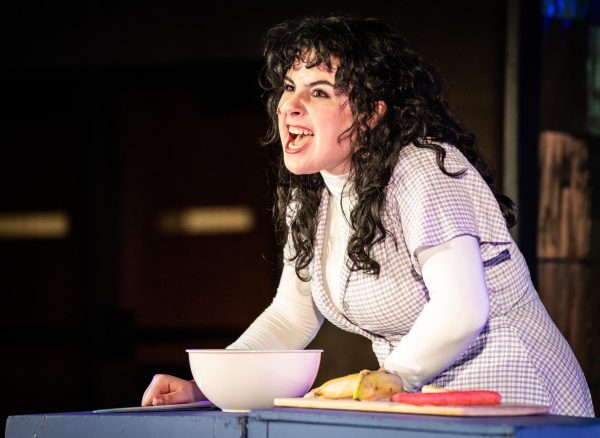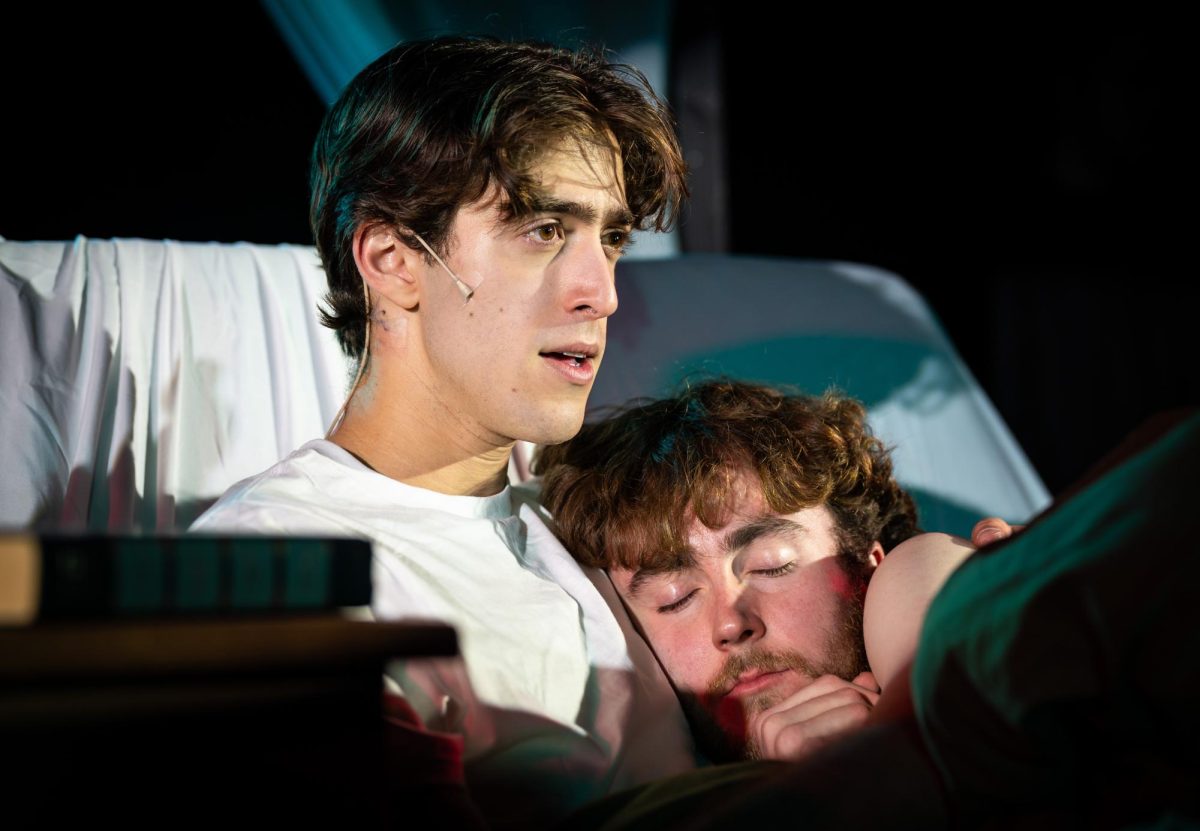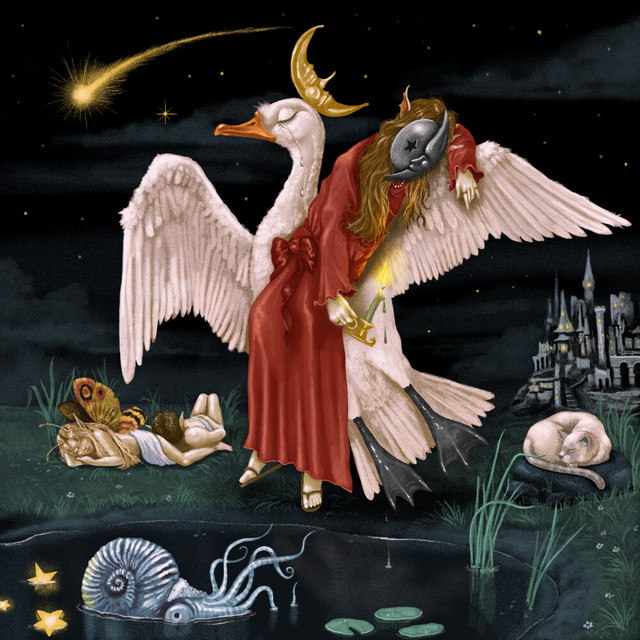The Norris Louis room at Northwestern University was alight with music and chatter. Rows of chairs sat surrounding the in-the-round stage, creating an intimate performance space for both cast and audience members. With a chess set on one side and a classic therapist’s setup — two chairs facing each other and a foot rest in between — on the other, the stage was full of anticipation. On the ground lay a giant board game full of the show’s plot points; “Exorcise a devil,” “Eat gefilte fish” and “Marry your psychiatrist” were among the ranks. It was closing night of Northwestern’s Jewish Theatre Ensemble’s (JTE) winter show, “Falsettos,” and the audience was full.
“Falsettos” is a musical about an unconventional family in the 70s; Marvin and his ex-wife Trina co-parent their child, Jason, while Marvin is dating his new male lover, Whizzer. The already tense situation is made even more fraught by Marvin’s wish to have a “tight-knit family,” denying the changes in his family and forcing Whizzer into the housewife role instead of appreciating Trina’s hard work and Whizzer’s need for freedom. Throw in a wiry psychiatrist, a fretting 10 year-old and two lesbians from next door, and you have a full-on bonanza of struggling characters, each with their own fight.
While Act I focuses on the dynamics of Marvin’s family, Act II displays the AIDS crisis of the 80s starkly and honestly. We explore the life of Dr. Charlotte and her wife Cordelia as Dr. Charlotte continues to see young men come to the hospital with an unknown disease and leave without any answers. Dr. Charlotte explains that “something bad is happening,” but she doesn’t quite know what. Meanwhile, Trina and Marvin plan for Jason’s Bar Mitzvah, a tedious task that has the exes living on the fringes. The show continues to get darker as truths are revealed and characters become more vulnerable. The close of the show consists of Jason’s Bar Mitzvah, an emotional number in which the entire seven-person cast is onstage.
In the JTE performance, the comedic parts of the show were emphasized and the choreography was bold and emotional, helping to tell the story through not only words but movement too. JTE did a fabulous job at portraying the raw emotion of the story, obvious through the constant sniffles and quiet sobs heard throughout the room at the end of the show.
The actors, all students at Northwestern, played their respective roles in ways that made them each stand out as their own characters; Trina (Lucy Lewis) was strong yet vulnerable, Marvin (Matthew Millin) was stubborn yet tender and Dr. Charlotte (Sophie Morvillo) and Cordelia (Tessa Kim) were bold yet sweet.
Lauren Nishi, a member of lights crew for JTE’s “Falsettos,” pointed out that the whole show revolves around grief and hope in the face of adversity.
“You see this family and their friends being resilient and finding love and brightness in every situation that the story throws at them,” Nishi said. “I think the hope is always there in how the characters rely on love and the people around them to keep going throughout the musical.”
Aside from the actual show, the rehearsal process was full of hope as well.
“The process of making a show with a group of people, no matter how difficult the subjects are, is inherently so full of joy that it’s easy to not get bogged down by the content,” Nishi said. “I never left the room feeling worse than when I came in.”
Ivy Idzikowski, an avid “Falsettos’’ listener, prompts audiences to think more deeply about the role of hope in the show. Idzikowski agrees that there are hopeful moments in the show, one of them during Jason’s Bar Mitzvah, both within the celebration, when the characters finally enjoy each other’s company and find value in their relationships, and when arguments between Marvin and Trina are resolved.
“It’s hope for parenting, for becoming a better parent, for becoming a better person,” Idzikowski said.
Idzikowski also brought up the hope that Marvin and Whizzer bring for Trina; seeing the two men quarrel and still love each other shows her that it is possible to love and be loved without the undertones of passive aggressiveness and distrust.
Idzikowski also believes that although hope is important, it’s equally crucial to let the darkness sit.
They explain that the HIV/AIDS crisis is still affecting today’s population and although we’ve brought awareness to it, we still have a long way to go for change.
“If they made it more hopeful, the theme of the musical might have been lost,” Idzikowski said.
Idzikowski is also passionate about the feminism in the show, or the lack thereof. The way that men treat Trina in the show is quite misogynistic; Marvin acts as if he has a claim on her, even though the two are divorced and seeing different people. While treating Trina like this, they also expect her to fix all of their problems.
“Trina’s arc was never resolved,” Idzikowski said. “She never got a happy ending. She expected her marriage with Mendel to fix her problems, but it didn’t. She is still unhappy because she is still treated like a tool.”
“I would just encourage everyone, every child, to understand who’s cleaning up their messes,” Idzikowski said. “Especially those who have experienced the world as a man or a boy.”
JTE’s performance of “Falsettos” captured the hardships of HIV/AIDS, the chaos of unconventional family dynamics and the heart of community in a beautiful way. Leaving the performance space, I felt enlightened; the messages of the show had been gifted to me, and I would not soon forget them.










